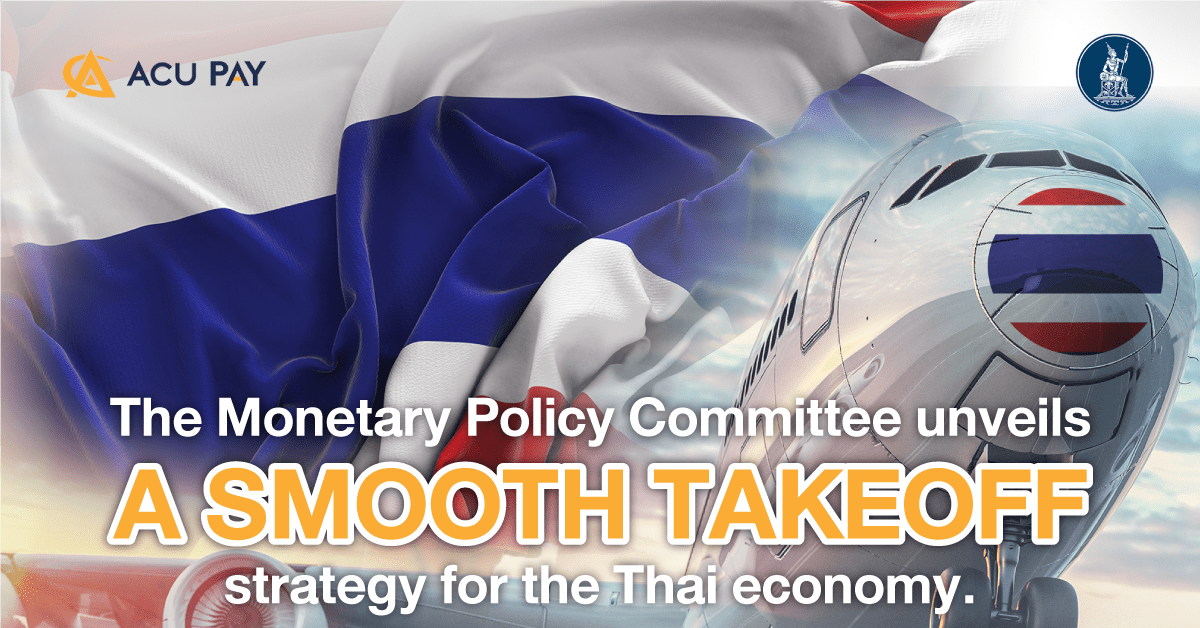

Piti Disyatat, Assistant Governor of Monetary Policy, Bank of Thailand (BOT), said at the Analyst Meeting that at present, the world economy and the Thai economy are undergoing a transition, which consists of 2 issues: adaptation from COVID-19 to the New Normal. Second, from the changing energy landscape. From the Russian-Ukrainian war, both of which caused inflation to accelerate relatively quickly. and at a high and unexpected rate.
This led to more normalization of monetary policy in many countries, including Thailand. But whether the adjustment is slow or fast depends on the factors of each country.
However, the MPC forecasts that the Thai economy in 2023 will have a clear recovery. It is expected to expand by more than 4%, which is considered a level that is close to or even exceeds Thailand’s potential. Therefore, these are forward-looking. As the economy recovers more clearly, there may be risks or demand pressures that will intensify inflationary pressures. If monetary policy does not adjust its position according to changes in the economy,
Mr. Piti said that what the MPC is trying to do is not to overheat the economy and not to let demand pressures lead to inflation. Therefore, monetary policy action has to slow down, which was already discussed before the MPC meeting that it was time to communicate more clearly.
The challenge facing the Thai economy is a smooth takeoff. Therefore, the challenge of Thai monetary policy is to slow down, be reasonable, and at the right time to allow the economy to move on its own. not overly hot because otherwise, it can aggravate inflation.
for the removal of the monetary policy accelerator. The MPC sees that it will not cause the economy to stall. Because if you look at the cost of inflation more than the cost of interest, it has a burden of expenses 7-8 times higher.
Therefore, the higher the cost of inflation, the more interest rates will need to be raised. To extract this, it is necessary in the medium term, where interest is not the hero. causing inflation to decrease, but making monetary policy by raising interest rates to see the economic cycle not aggravate inflation.
However, the MPC still believes that there is no need to adjust the target inflation framework. The inflation target framework of 1–3% is considered an appropriate level in line with the Thai economy. Although short-term inflation is somewhat out of the box due to out-of-control oil prices.
The frequency of monetary policy meetings Seeing that meetings are 6–8 weeks apart, this is a good time to see the development of economic data more clearly. in order to be significant in the implementation of monetary policy. Therefore, in the present condition, meetings six times a year are considered appropriate. But if it is really necessary, a meeting can be held outside the round.
Mr. Surach Tanboon, Senior Director at the Bank of Thailand’s Monetary Policy Department, said the monetary policy must be adjusted in a timely manner in line with changing economic and inflation trends. In order not to let the public expect inflation to continue rising,
Therefore, the proper implementation of monetary policy will help build public confidence. And in making monetary policy, we can’t forecast medium-to-long-term inflation from rising. But monetary policy has a duty to ensure that it can keep inflation in check.
Especially in the long-term framework where inflation is at a high level close to 2005, monetary policy may need to focus on having an appropriate inflation control mechanism. in order not to increase inflation expectations by looking at the slowdown in monetary policy Going back to normal should allow the economy to continue uninterrupted.
Mr. Sakkapop Panyanukul, Senior Director Macroeconomic Department, the Bank of Thailand, said that although there is no interest rate hike at present but will begin to see some transmission of monetary policy to the market.
Especially in the bond market where interest rates have risen, some commercial banks have started to move slightly, but most of them haven’t moved much.
However, the economy recovered gradually. What we see is a slowdown in measures. Therefore, large measures may be less necessary. But some sectors are still vulnerable, such as households, low-income groups or SMEs, so in terms of measures, they may need to be adapted to more specific measures and more specific groups.
This may be an existing measure, such as granting new credit through recovery loan measures. Debt care through sustainable debt restructuring There will be good progress, but of course, there are still some more points that need to be done. in the low-income and vulnerable groups that must be more important in the next phase.
However, it is expected that more packaged financial measures will be introduced soon to help specific groups. The measures may be existing measures but are added to make the implementation more effective.